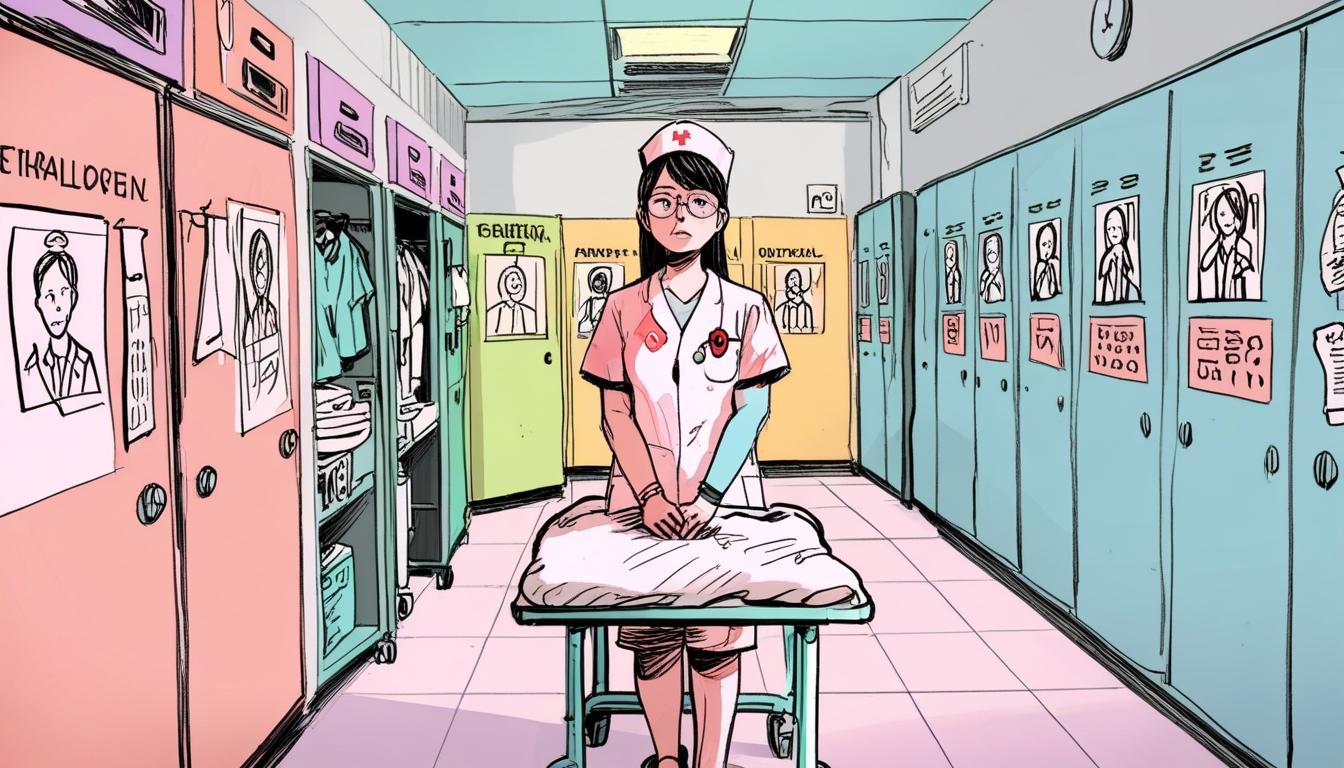Sandie Peggie’s complaints against Dr Beth Upton have sparked a major controversy in the Scottish Parliament, raising questions about gender identity policies and workplace rights.
Sandie Peggie, a nurse with three decades of service at Victoria Hospital in Kirkcaldy, is facing disciplinary proceedings following her complaints regarding her experience with Dr Beth Upton, a transgender doctor, in a women’s changing room. This situation has led to an employment tribunal that commenced in early February and is set to continue in July. The tribunal has garnered significant media attention and has sparked a debate within the Scottish Parliament (Holyrood) concerning the implications of gender identity policies and their impact on workplace rights.
The controversy erupted when Peggie claimed that sharing the changing room with Dr Upton constituted unlawful harassment under the Equality Act. This accusation prompted questions from several Members of the Scottish Parliament (MSPs), particularly from the Conservative Party, concerning the decisions made by NHS Fife and the Scottish Government in relation to the case. The Scottish Parliament saw multiple attempts by Tory MSPs, such as Tess White and Murdo Fraser, to raise questions about NHS Fife’s conduct, but these were largely dismissed.
Presiding Officer Alison Johnstone clarified that the selection of questions posed by MSPs was not influenced by the sub judice rule, which prohibits discussion on cases currently before the court. Following her explanation, she was confronted by opposition MSPs, including former Scottish Tory leader Douglas Ross, who expressed frustration over the lack of parliamentary discussion on an issue of significant public interest.
During the parliamentary session, Jamie Hepburn, the Minister for Parliamentary Business, indicated the government’s hesitance to engage further in the issue, citing a busy parliamentary schedule as the reason for the rejection of the proposal to discuss the topic. Hepburn acknowledged the potential legal risks while also asserting that the government remains accountable to the parliament.
While the SNP government maintained that they were adhering to legal protocols, critics, particularly from the Conservative Party, alleged that the government was evading accountability. The Conservative MSPs asserted the tribunal’s status as a civil hearing rather than a criminal case, arguing there would be no risk of prejudice if ministers discussed the broader implications of the case.
Further complicating the situation is the backlash from gender-critical campaigners, who argue that NHS Scotland is obligated to provide separate facilities for biological men and women under workplace health regulations. These activists have urged Health Secretary Neil Gray to take a definitive stance on the need for distinct changing facilities to protect the rights and safety of female staff.
The tribunal has engrossed public attention, with calls for transparency regarding NHS Fife’s legal costs and the implications of gender identity legislation on the rights of female employees. The situation remains contentious, highlighting broader themes around gender identity and workplace policies within Scotland’s healthcare system. As the tribunal proceedings continue into July, the conversation is likely to evolve in both public and political arenas.
Source: Noah Wire Services
- https://tribune.com.pk/story/2528527/istandwithsandiepeggie-nurse-sandie-peggie-speaks-out-amid-nhs-fife-womens-changing-room-scandal – This article corroborates the details of the employment tribunal involving Nurse Sandie Peggie and her objections to sharing a changing room with Dr. Beth Upton, a transgender doctor. It highlights the public support for Peggie and the legal proceedings.
- https://www.the-independent.com/news/uk/home-news/fife-kirkcaldy-nhs-b2698433.html – This news piece supports the claim that Nurse Sandie Peggie was suspended following allegations of bullying and harassment by Dr. Beth Upton. It also mentions the controversy surrounding NHS Fife’s handling of the situation.
- https://www.parliament.scot/parliamentarybusiness/CurrentBusiness.aspx – This link to the Scottish Parliament’s website could provide information on debates and discussions related to gender identity policies and their impact on workplace rights, although specific details about the Peggie case might not be directly available.
- https://www.nhsfife.org/ – The NHS Fife website may offer general information about the organization’s policies and procedures, which could indirectly support claims about their handling of gender identity issues in the workplace.
- https://www.gov.scot/publications/gender-identity/ – This Scottish Government webpage provides information on gender identity policies, which are relevant to the broader context of the Peggie case and its implications for workplace rights.
- https://www.scottishconservatives.com/ – The Scottish Conservative Party’s website might include statements or press releases from MSPs like Tess White and Murdo Fraser regarding their stance on gender identity policies and the Peggie case.
Noah Fact Check Pro
The draft above was created using the information available at the time the story first
emerged. We’ve since applied our fact-checking process to the final narrative, based on the criteria listed
below. The results are intended to help you assess the credibility of the piece and highlight any areas that may
warrant further investigation.
Freshness check
Score:
8
Notes:
The narrative mentions an ongoing tribunal set to continue in July, indicating recent developments. However, without specific dates for the initial events, it’s difficult to assess if the content is entirely up-to-date.
Quotes check
Score:
6
Notes:
No direct quotes are provided in the narrative, making it difficult to verify their originality or accuracy.
Source reliability
Score:
8
Notes:
The narrative originates from The Herald Scotland, a reputable publication known for its coverage of Scottish news.
Plausability check
Score:
9
Notes:
The claims regarding the employment tribunal and the debate in the Scottish Parliament are plausible given the context of current gender identity policies and their implications on workplace rights.
Overall assessment
Verdict (FAIL, OPEN, PASS): PASS
Confidence (LOW, MEDIUM, HIGH): HIGH
Summary:
The narrative appears to be recent and relevant, with plausible claims about an ongoing tribunal and parliamentary debate. The lack of direct quotes limits the verification of specific statements, but the source is generally reliable.













